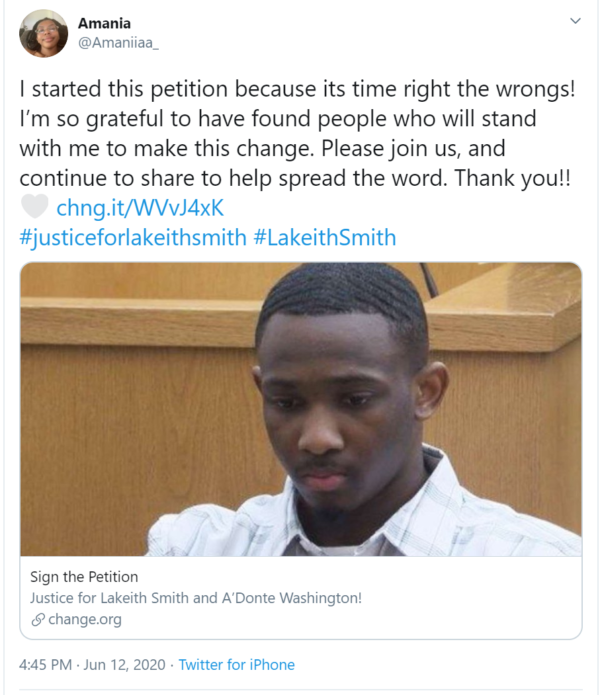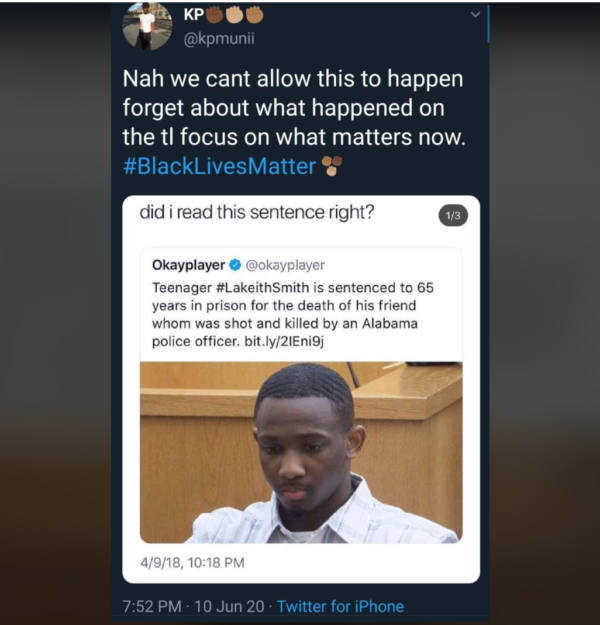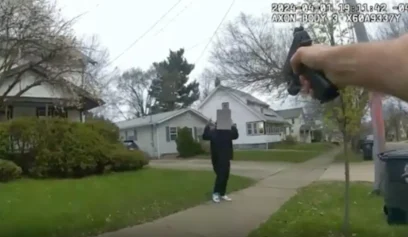A petition to free Lakeith Smith, a now-20-year old sentenced to decades in prison for felony murder charges after an officer shot and killed his friend during their commission of burglary in 2015, has gained more than 768,000 signatures. A controversial Alabama law called the accomplice liability law allowed authorities to prosecute Smith on murder charges after an officer killed his accomplice.
Smith, who was involved in a burglary alongside his friends in Milbrook, Alabama, five years ago, is currently serving 55 years in prison on charges for the murder of one of his friends who was shot and killed by a police officer.
When Smith was 15 years old, he and A’Donte Washington, Jadarien Hardy, Jhavarske Jackson, and La’Anthony Washington were involved in the 2015 break-ins of two homes located north of Montgomery, Alabama. The Montgomery Advertisers reports that during one of the break-ins, an officer arrived at the scene and became embroiled in a shootout with Jackson, and in the resulting melee A’Donte Washington, who was 16 at the time, was shot and killed by the officer. As a result of Alabama’s accomplice liability law, Smith, Hardy, Jackson, and La’Anthony Washington were all deemed responsible for Washington’s death, even though the officer fired the shots that killed him.

Recently, Smith’s case has gained renewed attention in the aftermath of recent police shootings and increased support for the Black Lives matter movement. A viral petition calling for Smith’s release has gained more that 768,000 signatures. Amania Galloway, who started the petition last month said on Twitter, “I started this petition because it’s time right the wrongs! I’m so grateful to have found people who will stand with me to make this change. Please join us, and continue to share to help spread the word. Thank you!”
Another petition that was created around the time Smith was sentenced has also gained renewed momentum and has reached nearly 100,000 signatures.
His friends accepted plea deals, but Smith’s case went to trial in 2018, and he originally received a 65-year sentence: 30 years for felony murder, 15 years for burglary, and two 10-year sentences for theft. In 2019, Smith’s sentence was reduced when a judge decided the 15-year sentence and one of the 10-year sentences could be served concurrently. He now faces 55 years in total. If Smith had taken the plea deal he would have faced at least 25 years in prison.
As Smith’s attorney defended him during the trial he said, “The officer shot A’Donte, not Lakeith Smith. Lakeith was a 15-year-old child, scared to death. He did not participate in the act that caused the death of A’Donte. He never shot anybody.” Smith is not accused of having possessed a weapon. It took the jury less than 90 minutes to decide on the guilty verdict.
Reuters reported that Facebook had been flagging posts about Smith’s sentencing as a potentially false report. While it is true that Smith was initially sentenced to 65 years after the incident, the total sentence was not just associated with the murder charges, but for burglary and theft charges as well.

The officer who shot Washington remains unnamed, and an Elmore County grand jury ruled the homicide justifiable.
Prosecutor CJ Robinson said he was “very pleased” with Smith’s sentence because he will not have the opportunity for parole for at least 20-25 years. At least a dozen states, including Alabama, allow someone charged with a felony that ends with a death to be charged with murder, even if the person killed was their own accomplice.
At least one otherwise stern law-and-order advocate finds Smith’s sentence to be excessive even under the statute the state used to prosecute the then-teenager for murder. Kent Scheidegger, legal director of the Criminal Justice Legal Foundation victims advocate group, told The Guardian newspaper that Smith’s prosecution for murder was problematic because when the grand jury ruled Washington’s slaying a justifiable homicide that meant no murder had taken place.
“You can’t be an accessory if there is no principal,” Scheidegger told the newspaper.


